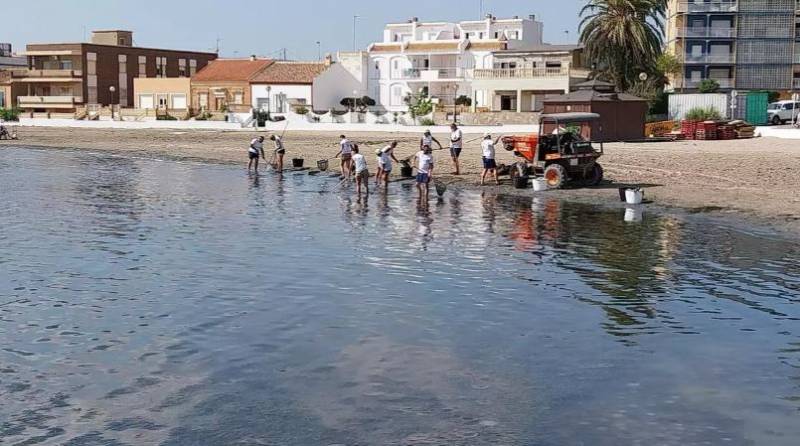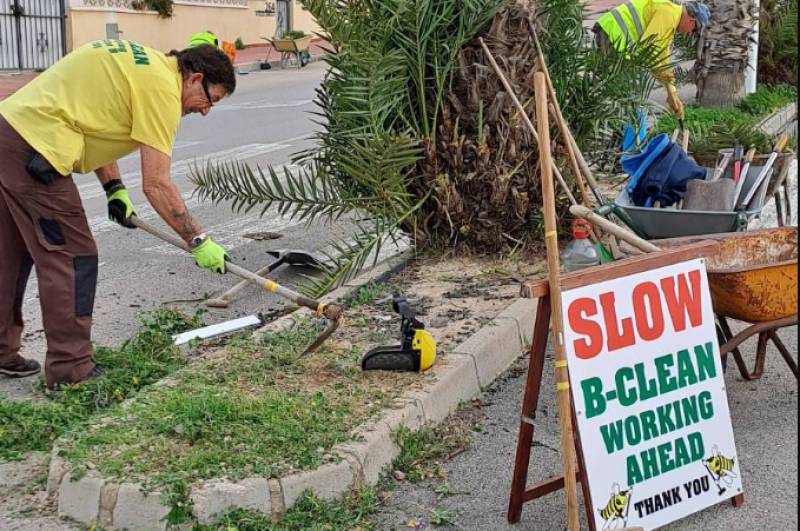
To be listed on the CAMPOSOL TODAY MAP please call +34 968 018 268.
article_detail
Date Published: 06/08/2024
Mar Menor open to installing more nets as jellyfish influx continues
Thousands of fried egg jellyfish washed up on Cartagena beaches last weekend

The warm waters of the Mar Menor are facing an all too familiar challenge: an influx of 'fried egg' jellyfish, scientifically known as Cotylorhiza tuberculata. Although the authorities are trying to keep nets to a minimum, the Ministry of the Environment has said this week that it has not ruled out adding more if the problems persist.
Last weekend, thousands of fried egg jellyfish washed up on the shores of Punta Brava and Los Urrutias, and more than 100 workers had to be called in to clean up the mess. And while the proliferation of this particular species is actually 55% lower than last year, residents in other Mar Menor municipalities like Los Alcázares are calling for more anti-jellyfish nets to protect their beaches.
These barriers have already been deployed on five beaches in San Pedro del Pinatar and San Javier, including La Mota, Villananitos, La Puntica, Pantalán and Veneziola. The latter, at the northern end of the Mar Menor, has the largest network of nets, stretching 1,213 metres.
The Ministry has no intention of installing more nets immediately; rather, it plans to wait for the local councils to report a problem with unmanageable numbers of jellyfish before acting. And even after this stage, a committee of scientists still needs to approve the barriers before they’re set up.
“The advisory board approved the limited and surgical installation of anti-jellyfish nets for the municipalities that requested them and, in these cases, they are installed on specific beaches, so to speak, creating a pool around the beach. Not like before, when they were placed around the entire perimeter of the Mar Menor," explained a Ministry spokesperson.
The installation of anti-jellyfish nets is a delicate matter, requiring a balance between swimmer comfort and the preservation of local marine life.
While the nets provide a much-needed defence against jellyfish, they also pose a potential threat to species like seahorses, which can become entangled. To address this, the nets are carefully checked daily to release any trapped marine life.
But it’s also vital that at least some jellyfish are allowed into the Mar Menor since their presence of jellyfish plays an important role in the food chain, contributing to nutrient regulation and ecosystem balance.
As the summer progresses and the jellyfish continue to flock to the warm waters of the Mar Menor, the Ministry will keep a close eye on the waters, ready to deploy more nets if necessary.
In other news: Five white storks electrocuted on Murcia power lines
Image: CARM
Loading
See more news about animals in Spain:
OR
Sign up for the Spanish News Today Editors Roundup Weekly Bulletin to get a comprehensive email with all the week’s news for Spain, Murcia, Alicante and Andalucía.
Get a sneak peek – here are a few of our recent Subscription Bulletins:
Discount Special Offer subscription:
36.95€ for 48 Editor’s Weekly News Roundup bulletins!
Please CLICK THE BUTTON to subscribe.
Contact Murcia Today: Editorial 000 000 000 /
Office 000 000 000




























